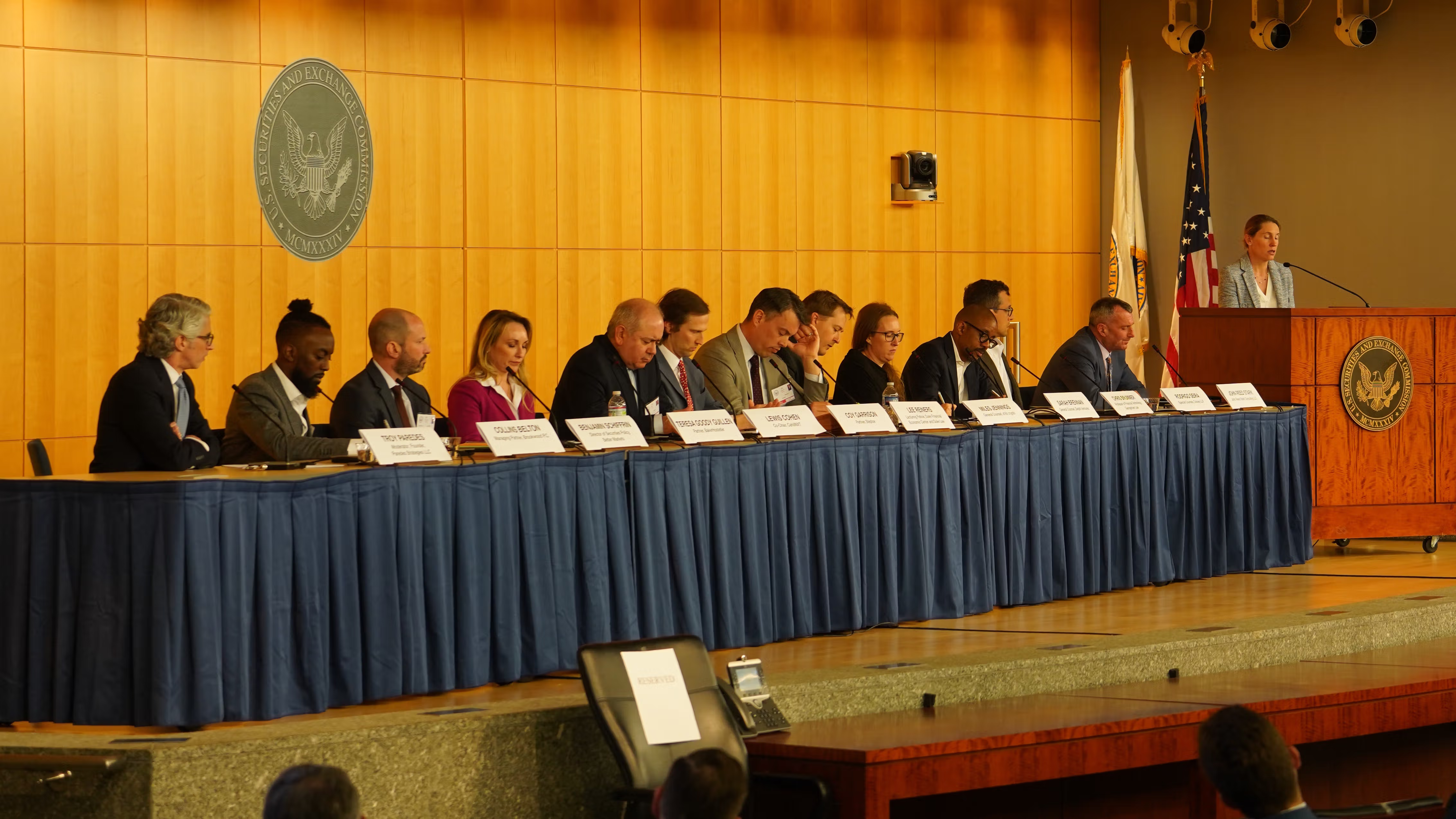5 Key SEC Roundtable Crypto Regulation Insights You Need

SEC Roundtable Crypto Regulation Insights: A Missed Opportunity
While the recent SEC crypto roundtable brought a refreshing shift from past regulatory practices, it ultimately failed to address the pressing issues that could shape the future of digital asset regulations. Instead of innovative proposals, much of the discussion revolved around outdated debates, leaving the crypto industry searching for clarity and guidance.
The Importance of SEC Roundtable Crypto Regulation Insights
The recent SEC roundtable on crypto regulation marked a critical moment in the ongoing debate about how best to govern digital assets. Regulatory clarity has become essential as the cryptocurrency market grows and evolves, especially after years of uncertainty following the SEC’s enforcement-heavy stance under the previous administration. Historical rulings, particularly the Supreme Court’s 1946 decision in SEC v. W.J. Howey Co., have shaped the current landscape, yet the ever-changing nature of digital assets challenges traditional classifications of securities versus commodities.
Given the distinctions between these classifications and their implications for regulation, the urgency for modernized frameworks cannot be overstated. As Congress considers new legislation to redefine these classifications, the SEC roundtable was an opportunity to gather innovative insights from industry experts, yet much of the discussion dwelled on outdated issues. Insights shared during the roundtable could have driven forward-thinking proposals to influence future regulations, particularly on matters crucial for the crypto industry, such as overlapping regulatory jurisdiction between the SEC and CFTC. Without proactive measures, the potential for regulatory misalignment remains a pressing concern for stakeholders.
[IMAGE_HERE]
The SEC Crypto Roundtable: A Missed Opportunity for Progress
The recent SEC roundtable crypto regulation insights event provided an important platform for discussing how to regulate digital assets. However, critics argue that the discussions largely revolved around outdated topics rather than forward-thinking proposals that could establish a robust regulatory framework. Since the landmark Supreme Court case, SEC v. W.J. Howey Co., the classification of products as either “securities” or “commodities” has faced significant challenges in today’s crypto landscape.
Outdated Conversations Hinder Progress
Despite the potential for innovation, the roundtable mainly echoed old debates about the Howey Test, which was established over 70 years ago. Participants like Miles Jennings, General Counsel at a16z, stressed the importance of focusing on the economic realities of digital assets instead of merely their legal classifications. “We must adapt our approach to fit the unique characteristics of cryptocurrencies,” remarked Jennings. However, much of the discussion deviated into terminologies concerning Bitcoin’s involvement in illicit activities and the SEC’s recent actions.
The Need for Clear Guidelines
A pressing concern is the shared regulatory jurisdiction between the SEC and the CFTC over digital assets. As Congress considers new legislation, such clarity is vital for the industry. According to reports, 67% of crypto professionals believe that clear guidelines will facilitate compliance and innovation. The absence of a collaborative effort between the SEC and CFTC during the roundtable underscores a significant gap. With no mention of the CFTC, attendees noted the importance of both bodies working together to establish regulations that serve the industry’s future.
As Commissioner Hester Peirce aims to promote transparency, the next roundtable must prioritize actionable ideas that will resonate with legislative initiatives. The future of crypto regulation hinges on collaboration and clarity.
[IMAGE_HERE]
The SEC Crypto Roundtable: Analyzing Missed Opportunities
The recent SEC Crypto Roundtable highlighted critical challenges and opportunities in regulating the burgeoning crypto industry, but it ultimately fell short of addressing pressing issues. While the shift from a ‘regulation by enforcement’ stance is notable, the roundtable largely revisited old debates, particularly regarding the outdated Howey test. This legal framework has struggled to apply effectively to digital assets, which demand a fresh approach to classification as either securities or commodities.
For industry stakeholders, it is vital that the SEC implements the proposed legislation that moves beyond the traditional test. Clear guidelines will not only bolster compliance but also promote innovation by delineating the operational landscape for crypto businesses. The failure to engage with the CFTC during the discussions also signals a need for collaboration; a united regulatory front is essential for steering the crypto market towards clarity and stability.
The insights gained from the SEC roundtable should be leveraged to inform future legislative efforts, ensuring that reforms resonate with both legal frameworks and the economic realities of digital assets. This situation encapsulates the need for more proactive engagement from regulators to develop a comprehensive framework that adapts to this evolving sector.
[IMAGE_HERE]
Read the full article here: The SEC Crypto Roundtable Was a Missed Opportunity







